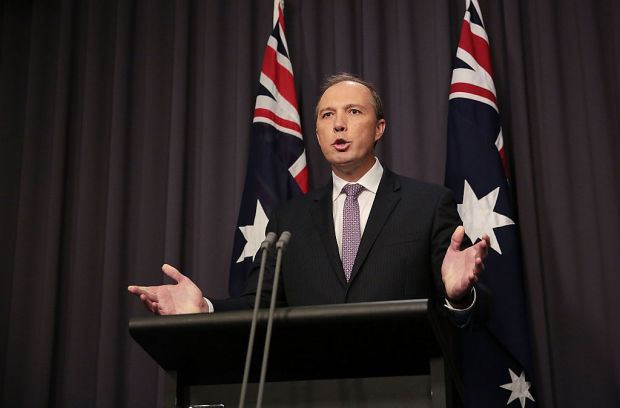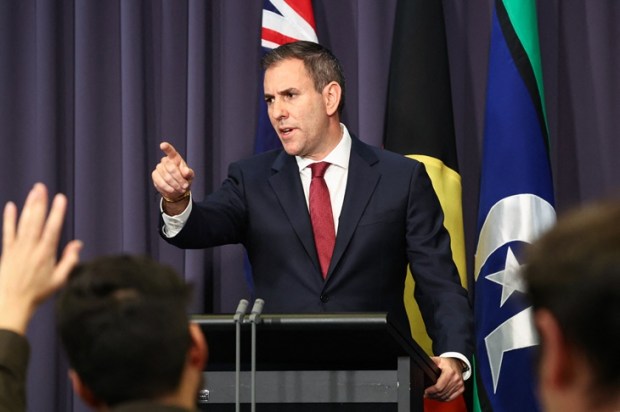One of the recurring issues during this election campaign is the ‘housing crisis’ the government created by irresponsibly pursuing its vision of a Big Australia. In 2024, the government allocated 185,000 migration places and nearly 572,000 foreign students commenced their studies in Australia. These new arrivals tested our infrastructure, put pressure on Australia’s health services and education, and compromised the government’s housing policies. Consequently, housing costs have skyrocketed and aspiring buyers, especially younger people, do not have the financial means to acquire a house or apartment. The government’s failure to provide accommodation has also exacerbated the problem. The housing crisis has become a contentious issue capable of generating civil conflict in Australia by exerting untenable pressure on the welfare state to alleviate the problem. This opinion piece offers a new, innovative, yet eccentric, way to ease the housing crisis.
The International Covenant on Economic, Social and Cultural Rights, ratified by Australia in 1993, relevantly states in Article 11(1) that, ‘The States Parties to the present Covenant recognise the right of everyone to an adequate standard of living for himself and his family, including … housing.’ Thus, housing is a social right protected by the Covenant, a ‘positive’ right that imposes an obligation on ratifying states to initiate action to guarantee this right. However, this is a gargantuan task considering that the UN-Habitat estimates that, every day, the world will need 96,000 new housing units to provide adequate homes for the estimated three billion people who will need them by 2030.
The Migration Information Source recently stated:
Creative approaches to accommodate newcomers could change the trajectory of housing insecurity and create greater sustainability. Cohesive and collaborative processes that include all stakeholders in addressing housing challenges could help people feel right at home – a deeply desired hope for refugees, asylum seekers, and other displaced individuals whose lived experiences have driven them far from their familiar places.
Let us thus consider what the Australian government could do to alleviate the housing crisis. The construction of more homes would appear to be the most obvious governmental response to the crisis. In this context, the federal Labor government has a $33 billion plan to build 1.2 million new homes before 2030. This plan is based on the realisation that the crisis will not be conquered without the frenetic construction of new accommodation, and that any failure to implement this plan will have profound consequences for young people and aggravate tension between new arrivals and settled communities.
Also, the Australian government, to stimulate young people to buy or build homes, proposed to take an equity stake in home purchases; this project is known as Labor’s Help to Buy housing scheme. The March Budget announced new price caps for this scheme. For example, Sydney will have a $1.3 million limit, well below the city’s median house price of $ 1.5 million, compared with $600,000 for the Northern Territory.
More bold suggestions for alleviating the housing crisis include the deportation of illegal migrants or of those who overstay their time in Australia, and compelling foreign students who finish their studies to return to their home country before applying for a resident visa. And there is also remigration – encouraging legal immigrants to return to their country of birth – even if some financial inducement must be offered for such a move.
But here is another, even bolder, suggestion: if the crisis persists, the government could requisition existing houses, especially those spacious dwellings owned by rich Australians who live in leafy suburbs, to accommodate recent arrivals. The affluent owners of these existing houses could be ordered to rent out a few rooms to these arrivals – perhaps refugees from Gaza or other Middle Eastern countries – to contribute to a Big Australia and save humanity.
I can hear you say: ‘Surely, this is an outlandish, eccentric proposal that constitutes an attack on the right of people to own property? It cannot happen in Australia.’
Of course, the requisitioning of houses has a long history, but usually was limited to wartime. For example, in the second world war, the British government requisitioned manor and country houses for several purposes: to ensure that civil servants could work from country locations and not be subject to German bombing raids on London, to use these houses for army training and relaxation purposes, to house convalescent hospitals, and even to provide luxury accommodation for captured German military personnel. This occurred in times of emergency.
But what is an emergency? We have seen that the Australian government characterised the Covid pandemic as an ‘emergency’, which justified monumental violations of the fundamental human rights of people and the considerable disregard of the Constitution, including section 92 which stipulates that trade and commerce among the states shall be absolutely free (and therefore should have been a barrier to States closing their borders). The emergency was invoked to justify the stranding of Australians overseas for long periods preventing them from returning to Australia, to impose vaccine mandates on people (thus directly violating section 51 xxiii(a) of the Constitution), to de-register medical personnel that defied government decrees, and to exonerate politicised police forces from liability for brutalising people. During the Covid pandemic, Australian governments ruled by executive decree and suspended the normal operation of the parliament and often extended the period of emergency well beyond the pandemic.
This experience has taught us that governments love emergencies because it absolves them from accountability. It effectively allows them to operate beyond the limits of the law. If so, it is not preposterous to anticipate that the government might be inclined, and indeed even tempted, in the future to declare a ‘climate emergency’ if it believes that the existence of humanity depends on it, thereby arrogating draconian and dictatorial powers to it.
And why not contemplate that a severe shortage in housing that potentially, if not actually, results in social upheaval and conflict may also qualify as a ‘housing crisis –an emergency’? Surely, governments would be able to solve the crisis if incommodious citizens and bothersome parliamentary debates did not burden it? For such authoritarians these parliamentary debates are just a waste of time and energy, especially in times of emergency. The fact that the government itself created the housing emergency is irrelevant, especially if the massive intake of immigrants and foreign students stimulates economic activity and prevents a recession from ravaging the Australian economy.
If such a proposal were activated, the government would surely offer some financial inducements to the owners of the requisitioned houses to deflect the claim that their property right is illegally invaded. But such inducement might create a further problem because the quality of the requisitioned accommodation would depend on the location, size, and comfort of the accommodation. This problem could be sidestepped if the owners were to fulfil their moral obligation to assist in the solution of the problem by generously offering accommodation for free to all those in need!
Additionally, one could assume that there would be many conflicts between the renters and the owners. This ‘innovative’ governmental solution would also necessitate the establishment of yet another quango, with a housing tsar at the helm who administers the program. Naturally, many regional offices would need to be opened because the new arrivals cannot all be accommodated in the cities but would also need to be allocated to desirable regional centres. The program may even provide for the establishment of an administrative disputes’ tribunal, the decisions of which could be appealed to a court. This is such a neat solution of the problem!
Surely, I can hear you say that this proposal is ludicrous and cannot be taken seriously; it is impossible that something like this could happen in Australia. No political party will propose and implement such a proposal if it wants to remain electorally competitive. This proposal must be a spoof. Is it? Possibly so, but nevertheless realistic because there is a precedent for governments to declare emergencies and to adopt human rights-defying abominations. Don’t say you were not warned!

























